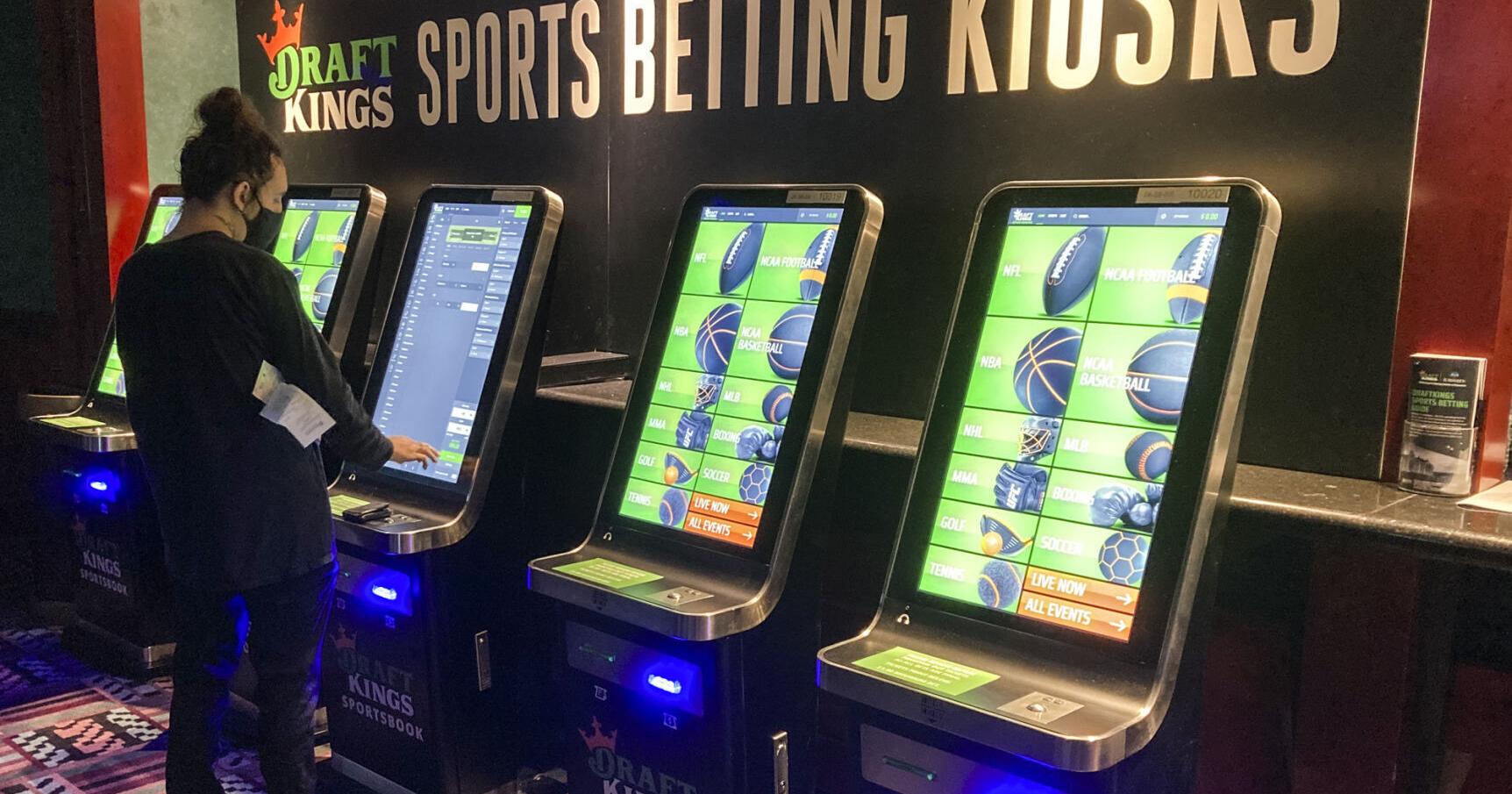Governments and gaming companies in a short time have doubled the amount of U.S. gambling.

From total gaming revenue of $53 billion in 2021 (then a record), the corporate-government partnerships jacked up their revenue from gambling to $99 billion last year, according to the American Gaming Association.
This doubling of money won from gamblers has come by expanding the market to people betting on sports and betting online. Of the 46 states involved in gambling, more than 30 now offer sports betting and six offer gambling online.
New Jersey, the pioneer in sports and online betting, and its gaming partners won $5.8 billion from gamblers last year, an 11% increase from the year before and also a new record.
This vast increase in gambling has been accompanied by a commensurate rise in harms to gamblers in New Jersey and across America. And even before this doubling of U.S. gambling, the Center for Gambling Studies at Rutgers University had estimated 6% of New Jersey residents have a gambling disorder, triple the national rate, and 15% have a less severe gambling problem, also nearly three times the national rate. The center said the more people gamble, the more activities they gamble on and the younger they start, the more likely they are to develop problems with not only gambling itself but also mental health problems like depression, anxiety and suicide. According to the Nevada Council on Problem Gambling, nearly half of people in treatment for a gambling issue have suicidal thoughts, and 17% of those have attempted suicide.
People are also reading…
Sports gambling and betting online are particularly harmful. They appeal to many more people, especially the young who are at greatest risk. Yet governments have done little to help the increasing number of gambling addicts, to counter the mental illnesses associated with gambling, or to even track the growing extent of gambling-associated health and economic suffering.
Last year New Jersey started offering gamblers phone and online options for excluding themselves from in-person and online gaming. That’s a small improvement. Self-exclusion can help those who see the problem and are still in control, and more convenient ways to ban one’s self from gambling places will benefit some. But there’s a reason society and its health and government agencies don’t depend on other kinds of addicts to bar themselves — addicts by definition lack of ability to ignore their cravings.
New Jersey legislators last year considered a number of modest bills to address gambling harms.
One would give courts the option of requiring a youth guilty of underage gambling to participate in a compulsive gambling prevention, education and treatment program such as those provided by the Council on Compulsive Gambling of New Jersey. But it also would allow the $500 to $1,000 fine to be waived.
Another bill would create a Gambling Treatment Diversion Court Pilot Program for those convicted of a crime as a result of their gambling addiction. This would be like the substance abuse courts that divert defendants to treatment and be similar to a program in Nevada.
A third bill would require public colleges whose athletic departments or booster clubs partner with sports wagering companies (!) to provide students with responsible gambling materials. Gambling by college students is among the most tragic results of the push for sports and online betting. There should be no partnerships between colleges and “a company that advertises, promotes, or sponsors sports gambling.”
None of these bills passed. All died this month when the legislative session ended.
A more promising proposal at the federal level is the Gambling addiction Recovery, Investment and Treatment (or GRIT) Act, which would dedicate some federal sports excise tax revenue to fund programs for gambling addiction prevention, treatment and research.
More importantly, the state and federal governments must accept responsibility for helping create and develop this industry that increasingly preys upon their citizens. They’re happy to get the revenue and often put it to good public purposes, but they need to be honest about the damage done and use some of that revenue for prevention, treatment and mitigation.
They might start by studying what actually happens when U.S. gamblers lose $100 billion in a year, and how that undermines the wellbeing of themselves, their families, their communities and even the nation.